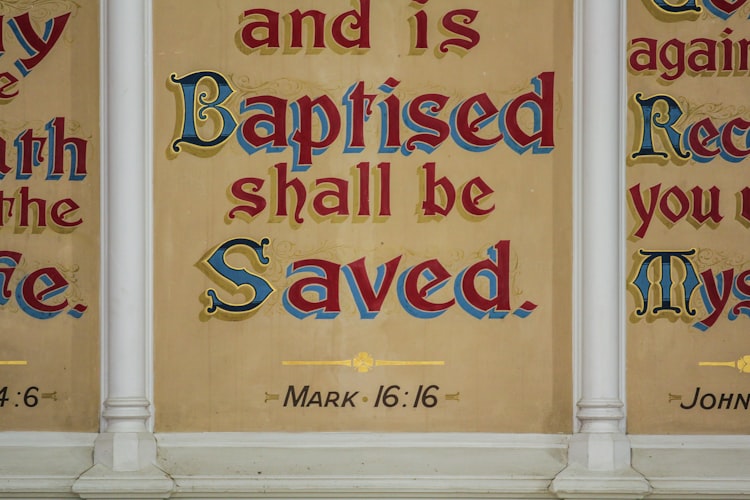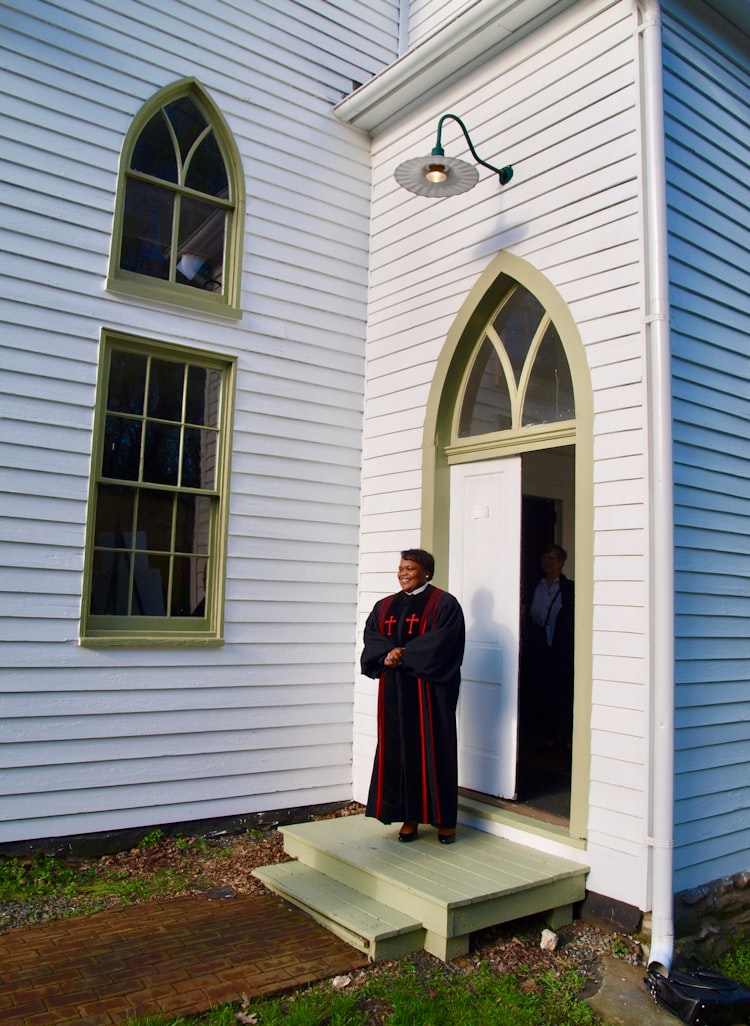7 "Plain Readings" of the Bible That Support Canceling Male Leadership in the Church
Whenever I teach on Scripture's clear stance on the full equality of women, and their absolute eligibility to lead and teach in the church, I receive pushback that this goes against, "The plain reading of Scripture." In other words, these folks argue, someone can only come to an egalitarian or feminist understanding of the Bible if we "twist" Scripture with a bunch of linguistic and cultural gymnastics.
However, there is simply no such thing as a "plain reading" of the Bible. We all come to the Bible with 2,000+ years of cultural and linguistic distance from when it was written. Even if you have been trained to read the Bible in its original languages, you still must grapple with the fact that you were not taught by a native speaker of koine Greek or biblical Hebrew; nor were you raised in ancient near eastern thought.
If someone tells you that they are giving you the plain reading of a biblical passage, you can go ahead and assume that the person has not given that passage the thought and consideration it deserves.
So, for fun (yes, I have a weird definition of fun), I thought I would give my own "plain readings" of gender roles in Scripture. But this time, let's pretend that we all agree that men should not be leaders and teachers. What "plain readings" of the Bible would we be espousing then?
Creation Order.
Men were created before women; animals were created before men. This must mean that in creation, there is an increasing superiority of each thing created. This clearly crescendos with womankind.
The Fall.
Man received the instructions about not eating from the Tree of Knowledge but then failed to accurately pass those on to Woman. All men therefore must be ineligible to lead or teach others.
Old Testament Female Leadership.
Women are consistently shown to be excellent national leaders and teachers. Miriam was a prophet and helped compose Exodus. Deborah was a warrior, judge, and ruler over Israel. Hagar, Tamar, Leah, and Ruth took their sexual fate into their own hands and refused to be pawn's in men's patriarchal maneuvering for progeny. Huldah was a prophet and advisor who taught and explained the Torah to King Josiah.
In fact, the amount of correction that women had to routinely give men must impliy men's inability to lead.
New Testament Female Leadership.
Women were the financial supporters of Jesus' ministry, while Judas was known to steal from the common purse. This shows that men should not be in charge of church finances.
While all the male disciples abandoned Jesus at the cross, the women remained, showing their superior faithfulness.
Women were the first to meet the risen Jesus, and the first to be given the Gospel of the Resurrection. Meanwhile the male disciples were hiding in a room with the door locked. Men could not be trusted with the responsibility of spreading the news of resurrection.
In the book of Acts, Priscilla (with assistance from her submissive husband Aquila, nearly always listed second) had to take aside and correct the man Apollos' substandard theology.
Phoebe carried the letter of Romans and served as its first expositor to the church there.
Junia is listed as outstanding apostle.
The daughters of Philip were prophets. Tryphena, Tryphosa, Persis, Euodia, and Syntyche are all said to be co-laborers with Paul; and Paul instructs churches to respect and listen to his coworkers as much as they would respect and listen to him.
Instructions Regarding Male Leaders and Teachers
Much of the instructions for elders in the church were directed toward men, obviously implying that men caused far more problems than the female leaders and teachers in the church at the time.
Not A Single Man Is Named as A Pastor in the New Testament
Titus 2
In Titus 2, both older men (could also be translated "elders") and older women (or "female elders") are given instructions; but only the women are instructed to teach. Men are therefore clearly excluded from teaching according to Titus 2.
Conclusion
It's easy to claim a "plain reading" when it fits our preconceived notions. For first century Jews, the plain reading of Scripture meant that messiahs can't be crucified; that food laws keep one pure; that Gentiles are excluded from God's covenant.
In the medieval ages, plain readings of Scripture led to the rejection of heliocentrism; the execution of heretics; the claim that all barbarian land automatically belonged to the church.
Today, so-called plain readings of the Bible can keep those who wish to remain faithful to Scripture locked into cultural patterns of sexism, racism, nationalism, and heteronormativity that Scripture was never intended to uphold. If your plain reading of the Bible violates the ethic of loving your neighbor as yourself, it might be time to stop seeing oppression of your neighbor as so "plain."



Member discussion